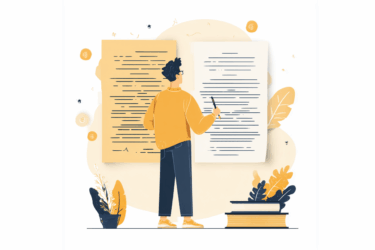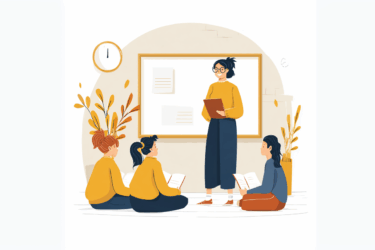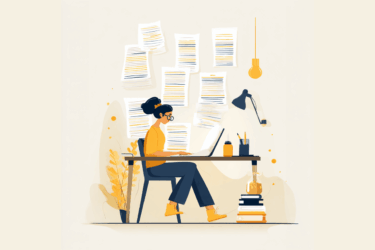Preventing Cheating and Promoting Ethical Behavior
Academic honesty is the #1 issue in education. A 2017 study discovered that 86% of college students confirmed they’ve been cheating one way or another. What’s more, over half of them consider this to be acceptable practice. Only 12% of the respondents said they would never step over integrity. Not that much. But why do we mention it now?
Since that research was published, the situation hasn’t got any better. Students try new approaches, technology advances and evokes digital cheating, AI models are evolving, and spotting plagiarism becomes harder. Yet, not impossible.
One effective strategy to tackle cheating is using plagiarism detection software. The tool finds similarities in the assignment and even can alert educators to change their approach to teaching and evaluation. If professors face plagiarism in their students’ works too often, it might be high time to focus on cheating prevention. And this is another strategy for maintaining integrity: cultivating a culture of academic ethics and developing information literacy skills in students. Educators should encourage open dialogues on ethical behavior and teach their students how to find and validate sources, evaluate the information they need, and use it honestly and effectively. By proactively addressing this issue, educators can foster a more ethically-driven academic environment for generations to come.
The Negative Impact of Plagiarism on Academic Progress
Sometimes plagiarism effects are instant; sometimes they fire back in years, like a long-range boomerang. Within the past decade, there were multiple cases when academic misconduct spoiled students’ lives or even ruined the careers of famous people.
- The “Copygate” scandal with the German defense minister Guttenberg cost him a position. Bayreuth University revoked his Ph.D. degree after non-original content was found in his doctoral thesis. At that time, Guttenberg was a promising politician, popular among the German people — some even called him a successor to Angela Merkel. And the plagiarism consequences deprived him of both his reputation and career.
- The president of Hungary, Pal Schmitt, also had to step down after discovering himself in the middle of the plagiarism scandal. Though his resignation had little to no effect on Hungary, as the country is a parliamentary republic, Schmitt’s political career was buried. Also, Budapest’s Semmelweis University revoked his 1992 doctorate.
- In 2016, three major Australian universities expelled 2 students, imposed severe penalties on 70 students, revoked 4 degrees, and revised their assessment policies to secure honest academic performance. This happened after around 1,000 students from 16 universities hired ghostwriters to complete their assignments.
- Cheating was also revealed at Harvard, despite its reputation as one of the top USA colleges. Around 70 students had to withdraw out of 125 suspected. Some of them enrolled back after a pause in their academic progress. Moreover, in 2024, the academic community was stirred by Claudine Gay resignation as Harvard President due to the plagiarism allegations dating back to 1993.
Each of these cases stirred the academic community with its negative effects. At the same time, they highlighted the importance of educating students on the possible consequences of misconduct.
Not only academic environment: read about the most famous plagiarized songs
How Plagiarism Checkers Benefit Educators and Students
From a long-term perspective, plagiarism checkers ensure both student success and educator efficiency. These tools have several other pros, too.
Benefits of Plagiarism Checkers for Students
- Develop writing skills. By highlighting similar or even copied content, plagiarism checkers help students improve their writing habits and encourage proper citation.
- Empower fair grading. Ensuring that submitted works are unique, plagiarism checkers create a level playing field for all students.
Check out a few plagiarism detection tools that help professors and students simplify their lives and support honesty and ethics.
| 🧠 PlagiarismCheck.org | Pinpoint detection 🎯 |
| 📗 Grammarly | Encourages originality 💡 |
| 🔎 Copyleaks | Swift feedback 🚀 |
| 🔐 Quetext | Time-saving ⏱️ |
Improving Academic Integrity in a Digital Age
With the rise of Chat GPT, a new round of discussions about anti-plagiarism policies evolved. AI technology advancement imposes new threats to academic integrity, but on the other hand, it opens new opportunities. To help educators ensure academic honesty in the digital age, PlagiarismCheck.org has introduced an AI Plagiarism Detector. The tool identifies whether the text was written by a human or Chat GPT (or any other AI writing assistant). Thanks to the artificial intelligence behind the solution, it takes technology and education synergy to the next level. Using AI Plagiarism Detector, professors can scan papers for AI-written text and use the reports from it to foster critical thinking in their students. Given that Chat GPT and other tools sometimes provide misleading information, teachers can highlight the importance of choosing credible sources and evaluating them for relevance. AI content detector can contribute not only to cutting-edge academic integrity strategies. Since multiple copywriters started using different AI tools, businesses are in danger of losing their ranking on search engines because of unoriginal content. With PlagiarismCheck.org, they can be sure their organic promotion is on the safe side.
The Link Between Plagiarism and Professional Ethics
The issue of plagiarism goes far beyond overstepping academic integrity principles. First and foremost, it demonstrates the person’s commitment to learning and values. If someone intentionally violates intellectual property in university or college, they are more likely to ignore professional ethics in their future job. Take the scandal at the Australian universities we’ve mentioned above. One of the professors, Shirley Alexander, said that the scandal drew their attention to the problem of plagiarism and its impact. She also mentioned the university was trying to do its best to make students ready for the real job and introduced a new approach to exams for plagiarism prevention. 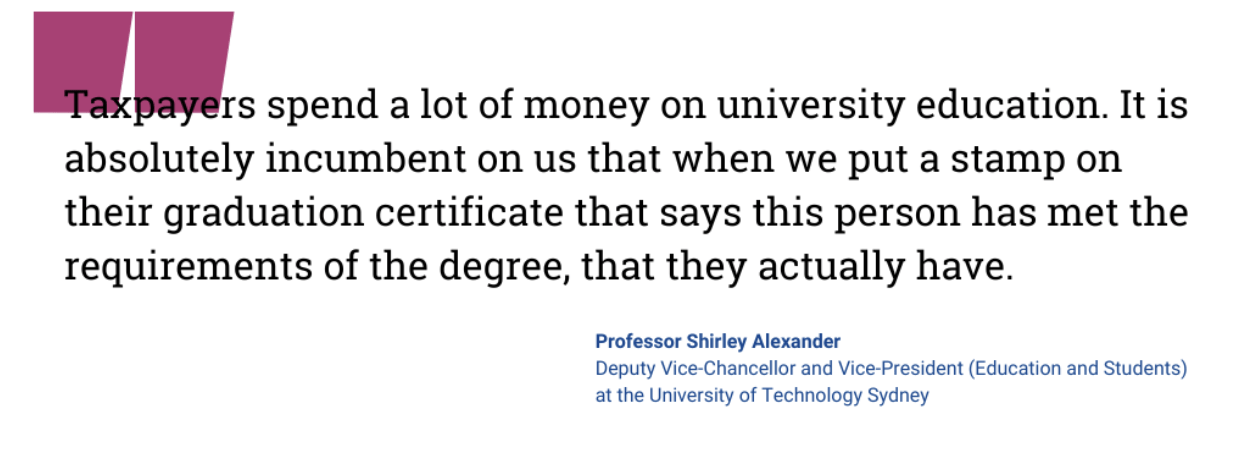 Source: The Sydney Morning Herald
Source: The Sydney Morning Herald
The former Dean of the Faculty of Arts and Sciences at Harvard, Michael D. Smith, also said that the college puts ethical standards above all when dozens of students were caught on cheating. 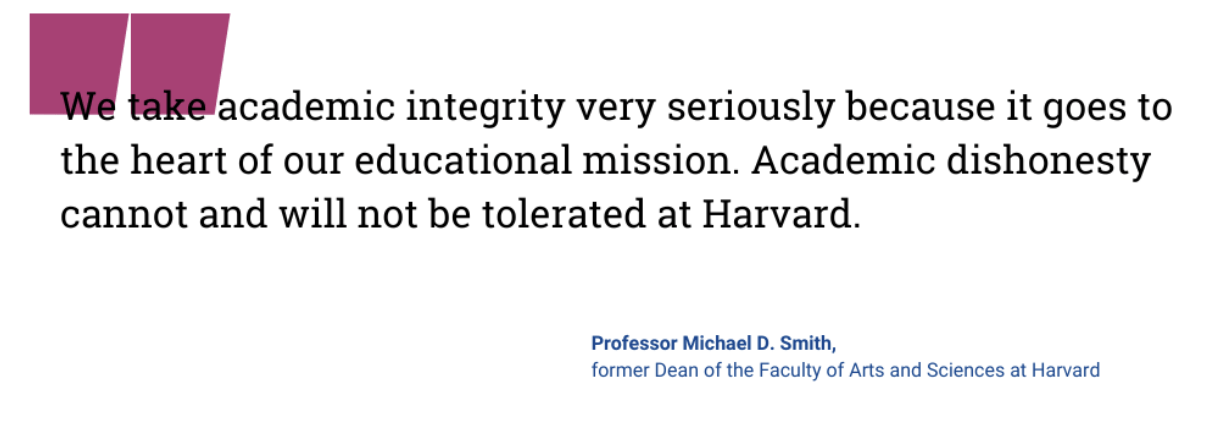 Source: The Harvard Gazette
Source: The Harvard Gazette
We also believe that the increased attention of universities to academic honesty policies is crucial for building a responsible and ethical student community. After graduation, such professionals will be able to contribute positively to their industries and society as a whole by establishing a healthy work environment.
FAQ
Can plagiarism checkers detect all types of plagiarism?
Though most plagiarism checkers can find exact matches, paraphrasing, self-copying, and even AI-written text, they are not 100% accurate. For instance, if they can’t access the paywalled journal, they won’t highlight it in the student’s work. That’s why we recommend educators scan for plagiarism and consider results critically, relying on their expertise and judgment.
How can educators prevent plagiarism without relying solely on plagiarism checkers?
Plagiarism prevention starts with nourishing a culture of academic integrity, teaching students how to cite properly, and highlighting the importance of original research. Also, educators can think of more creative tasks that foster critical thinking and encourage students to come up with their ideas.
What role do academic integrity policies play in preventing plagiarism?
Academic integrity policies set clear expectations for ethical behavior. They also indicate the possible consequences of ignoring those standards, thus nurturing responsibility and honesty.
Are there any drawbacks to using plagiarism checkers in education?
Yes, occasionally, the tools can give false positive results, confusing original text with copied and vice versa. Another concern is privacy, as some plagiarism checkers store scanned students’ works in their databases. We recommend considering these when choosing a solution for your institution.



